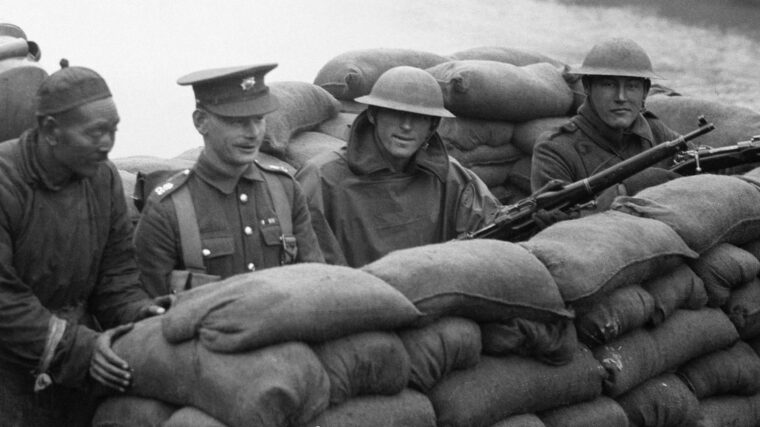
Axis
A Memorable Marine Mascot
By Eric NiderostSoochow was a mongrel dog with a remarkable gift for self-preservation. A homeless stray, he attached himself to some U.S. Read more

Axis
Soochow was a mongrel dog with a remarkable gift for self-preservation. A homeless stray, he attached himself to some U.S. Read more
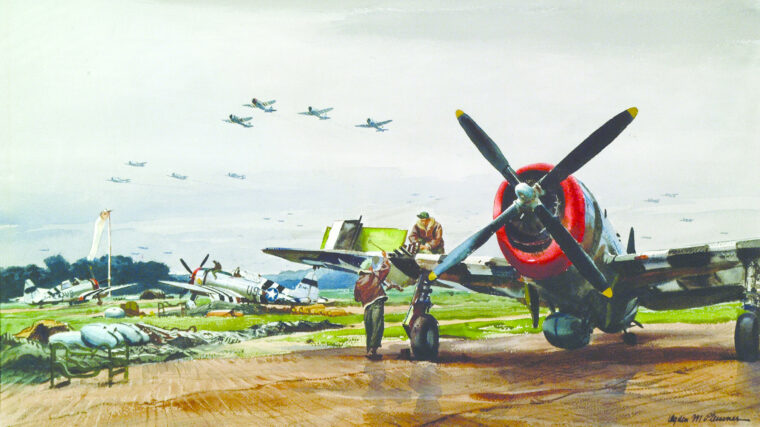
Axis
Since the end of World War II, the aviation press has made the North American P-51 Mustang into the superstar Allied fighter of the war. Read more
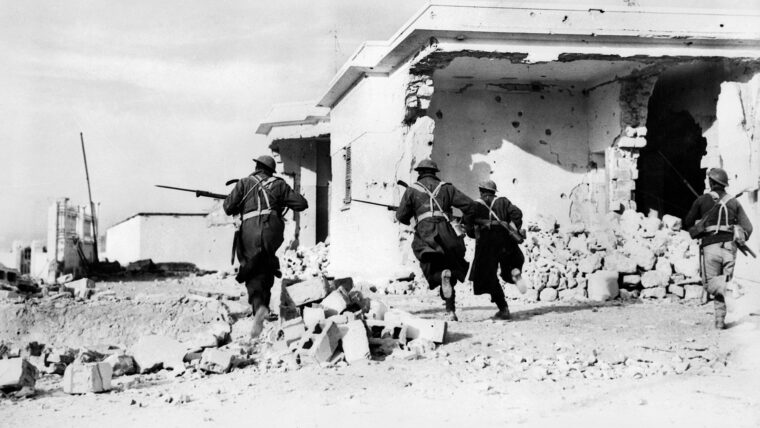
Axis
The desert sky lit up like a summer lightning storm on the night of December 31, 1941. The distant thunder of hundreds of guns rolled across the sandy, stony ground. Read more
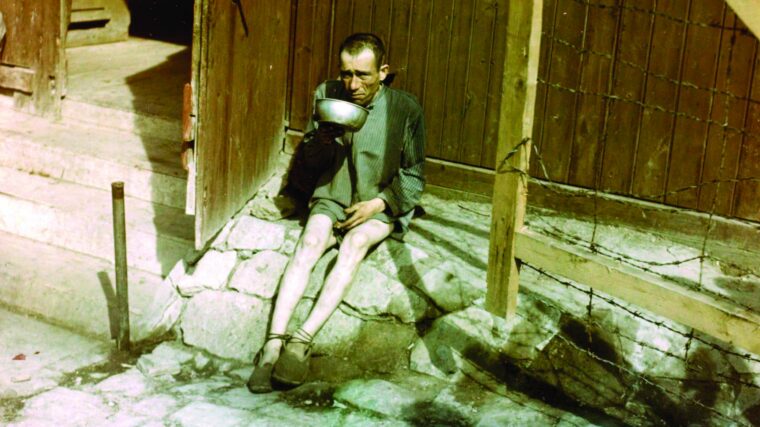
Axis
When Adolf Hitler became chancellor of Germany on January 30, 1933, the world changed forever.
Not only was Hitler determined to pay back Germany’s enemies for his country’s defeat during the Great War, but he was also determined to rid Germany and the rest of Europe of persons whom his twisted Aryan ideology believed were “inferior” or “subhuman.” Read more
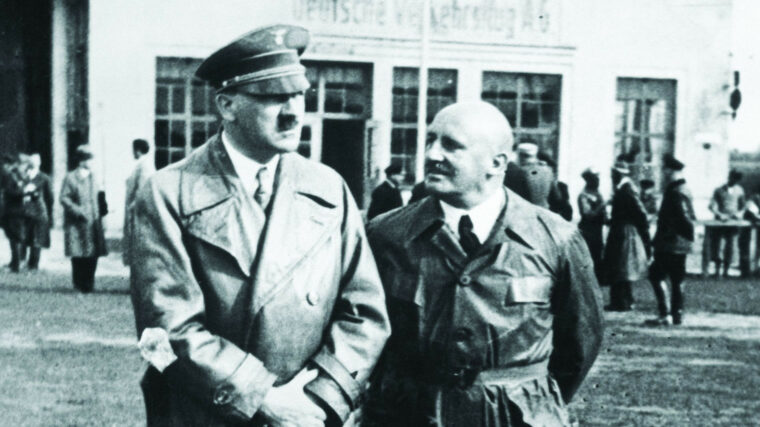
Axis
It was May 23, 1945, roughly a year before the execution of Julius Streicher, founder and publisher of the vilest anti-Semitic Nazi propaganda of the war. Read more
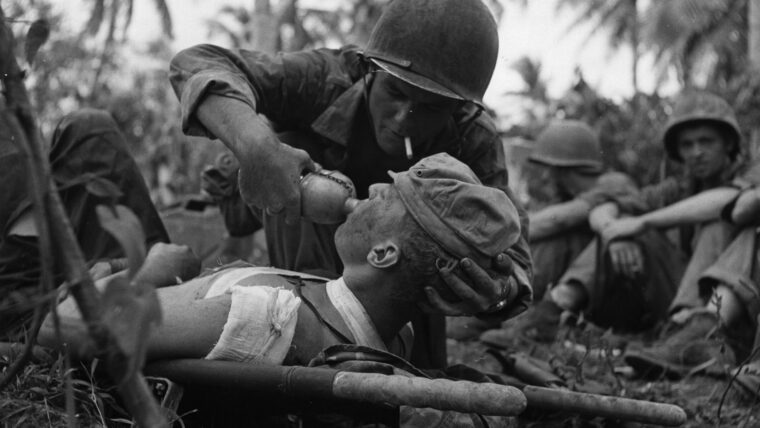
Axis
For centuries wounded soldiers of every nation were responsible for much of their own care. Medical attention was primitive and often not a high priority for military planners beyond the officer corps. Read more
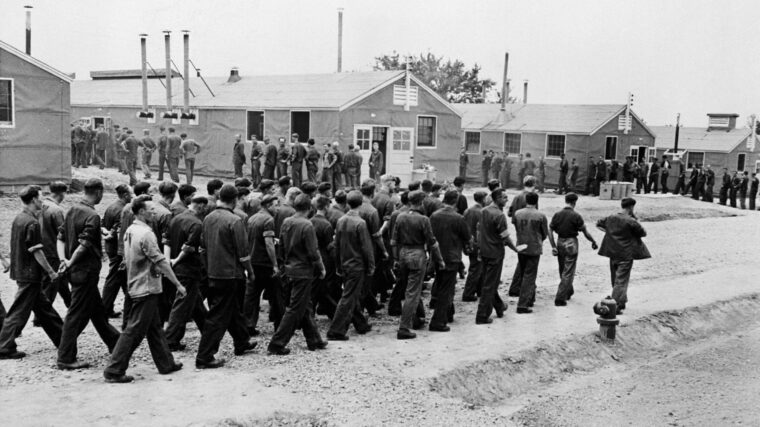
Axis
On Christmas Eve, 1944, Colonel William Holden, commander of the prisoner of war camp at Phoenix, Arizona, suddenly lost all hope for a happy holiday. Read more
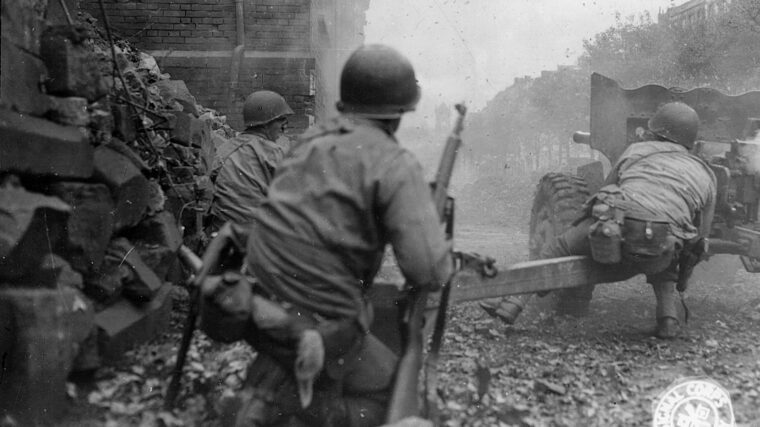
Axis
By the autumn of 1944, German resistance in the West was quickly crumbling as the British and Americans approached the German border 233 days ahead of schedule. Read more
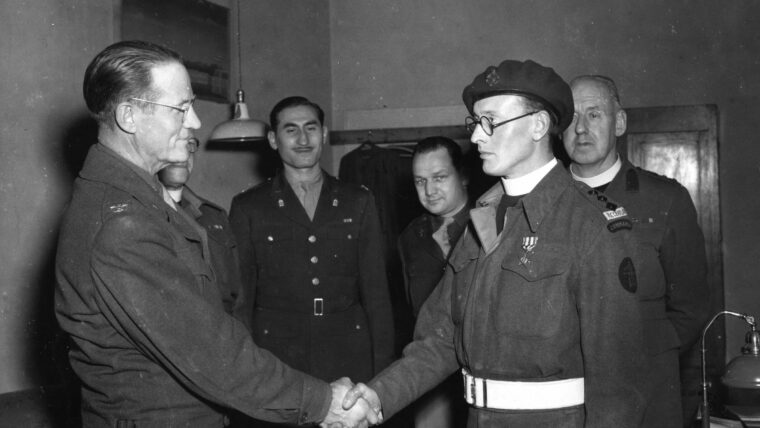
Axis
One day shortly after the Battle of El Guettar in central Tunisia in March 1943, Colonel William O. Read more
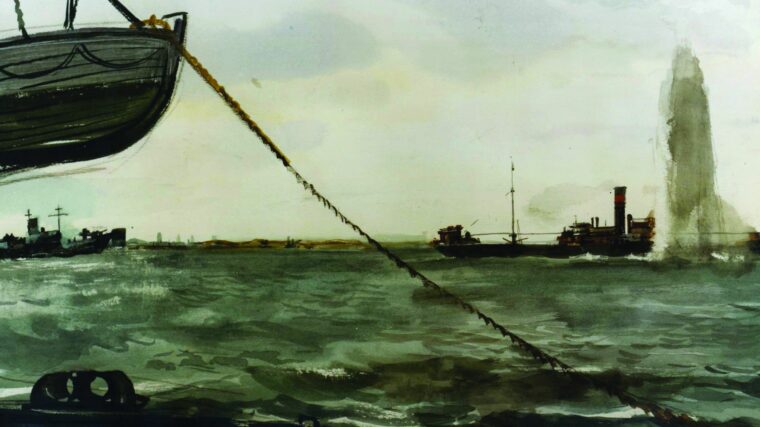
Axis
Early in World War II, a bitter joke circulated within the Soviet military. It ran, “What is the first thing Russia does when war is declared? Read more
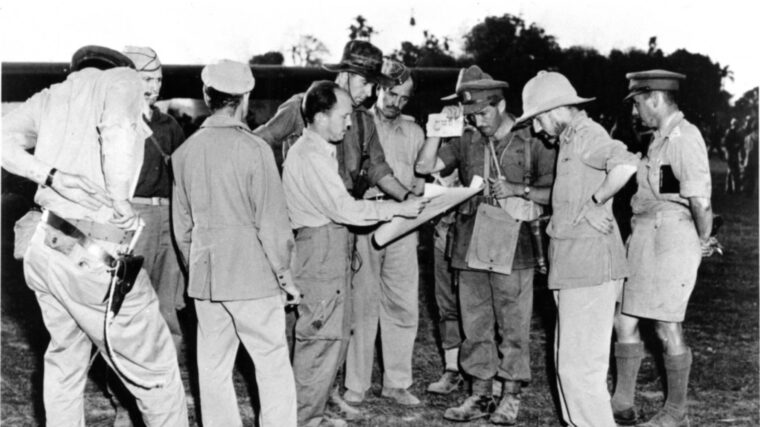
Axis
British General Orde Wingate is one of the more enigmatic World War II commanders encountered in a number of biographical and military historical accounts. Read more
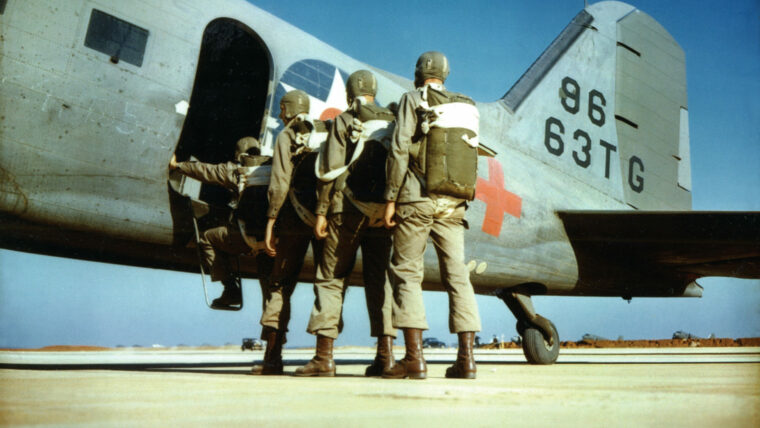
Axis
Every American soldier who jumped into North Africa, Europe, the Philippines, and other combat zones around the globe during World War II had to first learn his trade at Fort Benning, Georgia. Read more
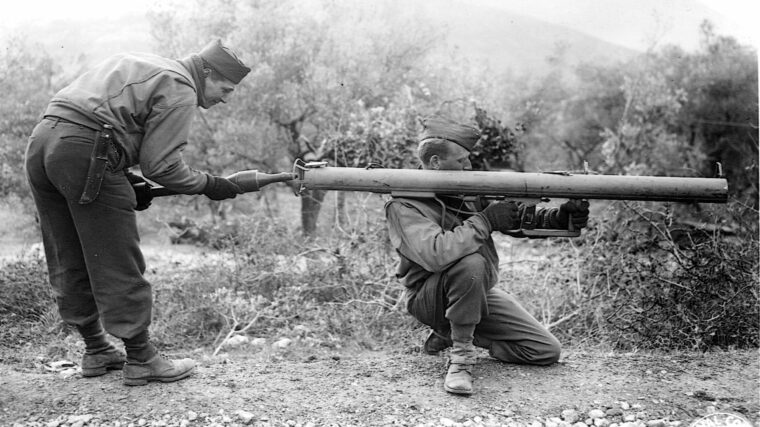
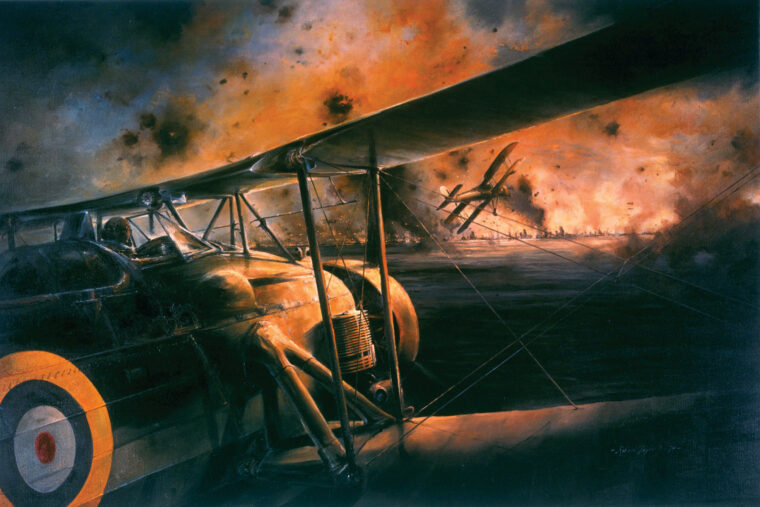
Axis
Radar, atomic bombs, jet engines and early cruise missiles were among the numerous technological advances of World War II. Read more
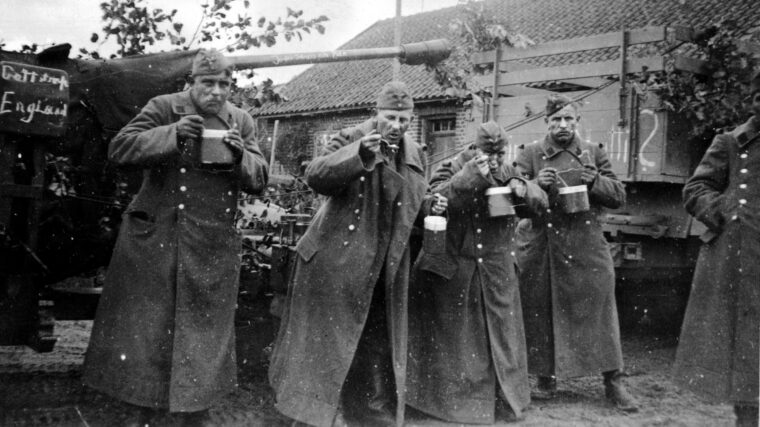
Axis
It was Napoleon Bonaparte who purportedly said, “An army travels on its stomach.” Toward the goal of feeding his particular army’s stomach more efficiently, in 1795 the French general came up with an interesting solution to the problem. Read more
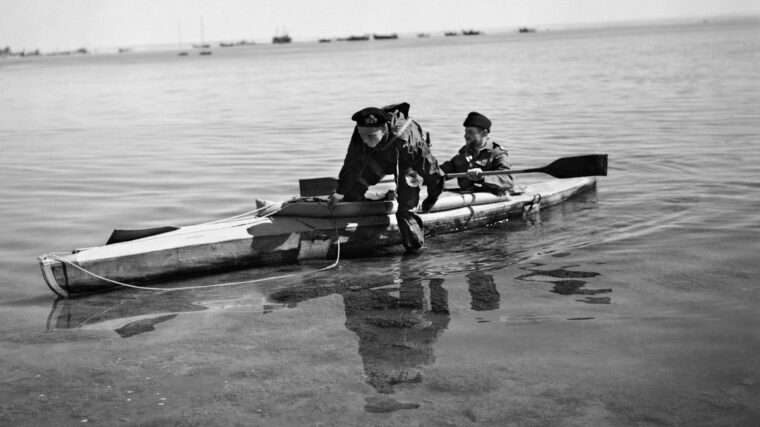
Axis
Early in World War II, the British War Office and the Admiralty were shocked by daring small boat attacks, some of them suicidal, on Allied shipping in the Mediterranean Sea. Read more
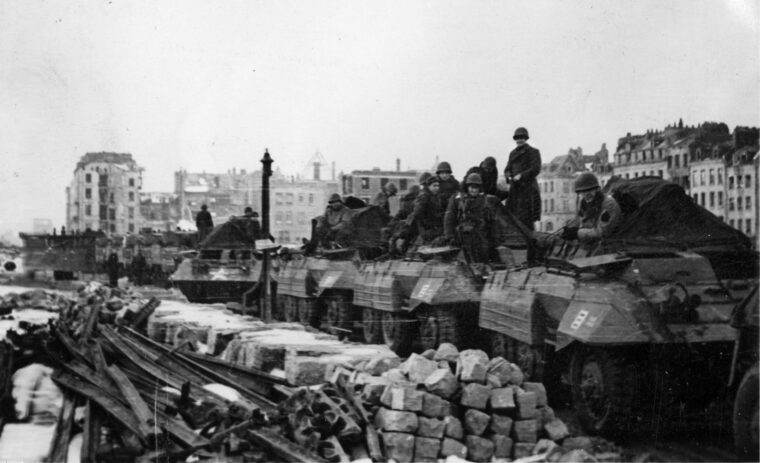
Axis
The 809th Tank Destroyer Battalion was an independently attached unit of the U.S. Army. The battalion was activated on March 18, 1942, at Camp Forrest, Tennessee, and remained in the United States through most of the war. Read more
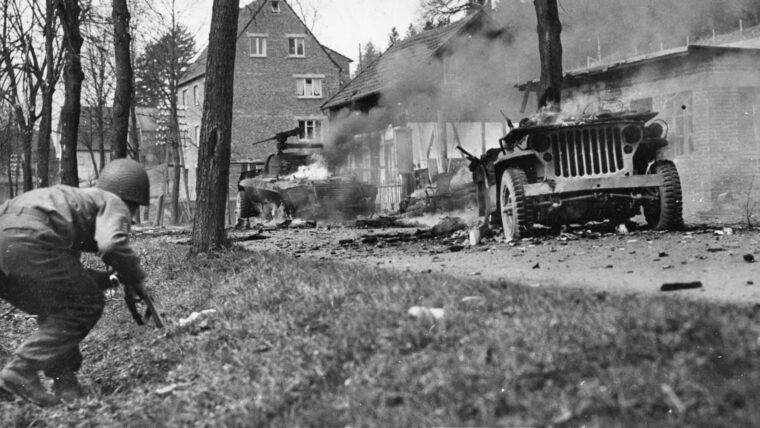
Axis
The Messerschmitt Bf-109 fighter plane dove out of the sky with machine guns firing. The pilot’s target—a pontoon bridge being stretched across Germany’s Werra River by American engineers. Read more
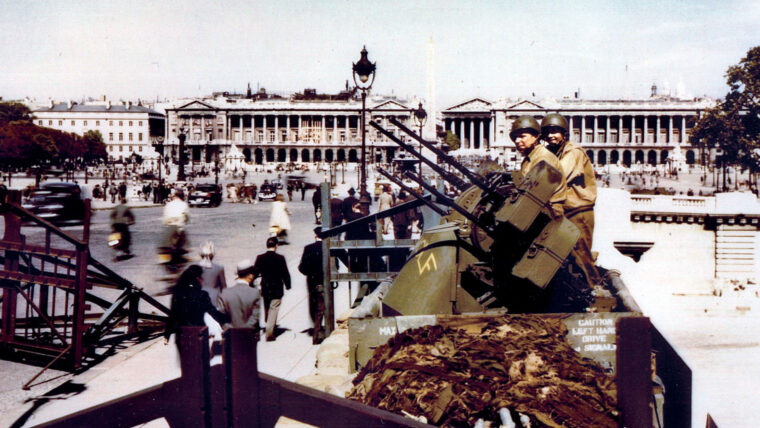
Axis
Almost every soldier on western European battlefront wanted to get to Paris. Once it was liberated on August 25, 1944, it became a mecca for Allied soldiers on leave who filled the streets, bars, and historic buildings, enjoying a brief respite from the war. Read more
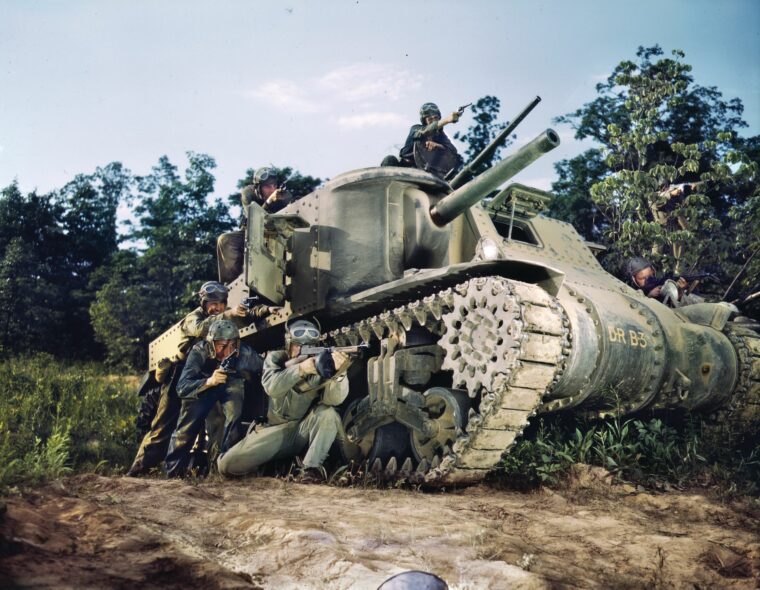
Axis
The United States had not yet entered World War II when Time magazine noted that the Army had created two new armored divisions. Read more